|
|
|









Robert F. Kennedy Jr.









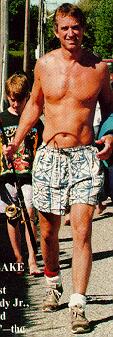 |
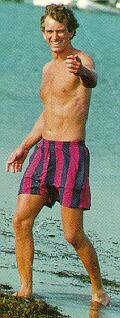 |
|
|
|
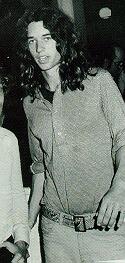
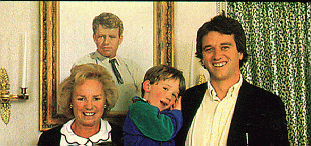

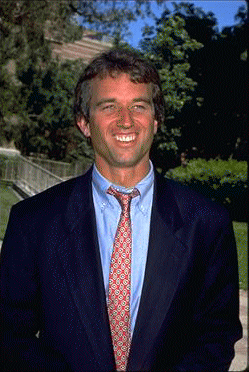
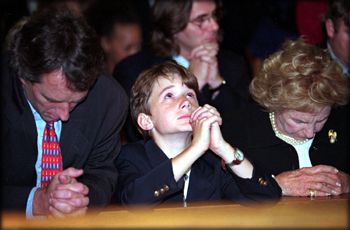
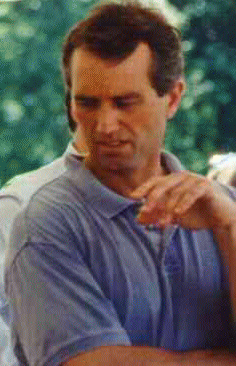
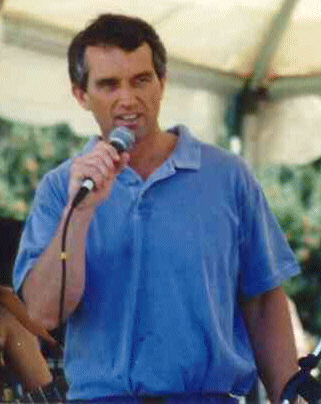
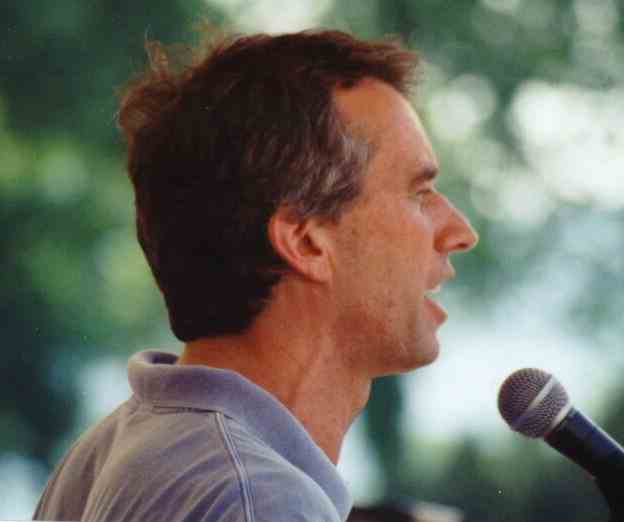
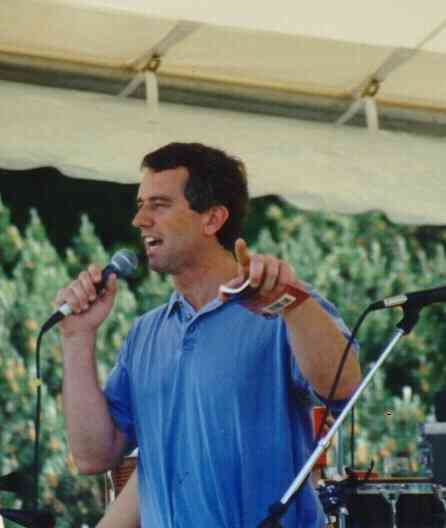

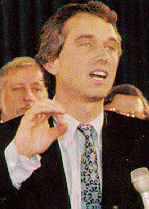
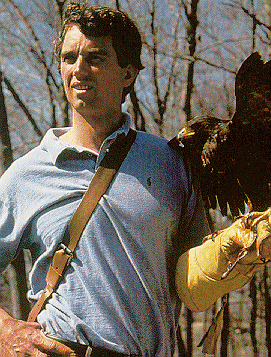

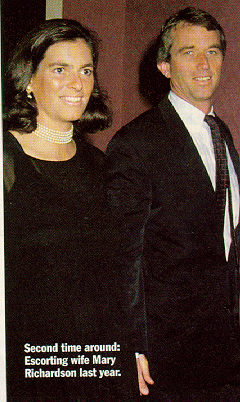
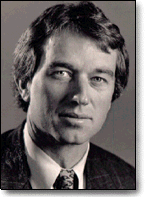

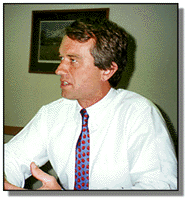
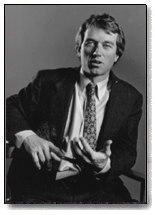
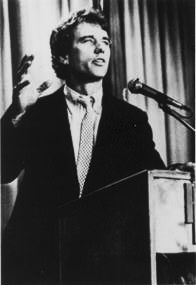
Personal:
Bobby and his first wife Emily were separated in 1992, although they still shared the
same residence in Bedford, NY where Emily still lives. Bobby divorced
Emily on 3/25/94; he travelled to the Dominican Republic to get a
"quickie" divorce so he could marry the pregnant Mary Richardson, just three weeks
and one day later on April 15, 1994 aboard a research vessel on the
Hudson River. They were married by a local justice of the peace.
Although Bobby's priest/friend Father Tom Barry was present at the
ceremony, it was not a Catholic service.
Bobby currently lives in a suburb of New York with his second wife Mary, they have 3 children. He also has 2 children with his first wife Emily.
Environmental Endeavor:
Robert F. Kennedy Jr. has spent the past thirteen years of his life as
an environmental advocate. The environmental lawyer represents two New
York based companies, the Hudson Riverkeeper, which is concerned with the
clean-up and protection of the Hudson River, and the Natural
Resources Defense Council (NRDC), a national lobbying and litigation
group, where he is a senior staff attorney. He is also an Environmental
Law professor at Pace University.
Kennedy has had a passion for nature since he was a young child and was
considered the nature boy of the family. Bobby, the third of eleven siblings,
spent most of his early summers playing with his dogs, homing pigeons,
and even caring for an abandoned sea lion, while his 28 cousins played
touch football and other sports. His cousin Christopher Lawford recalls,
"Bobby was lord of [his] jungle, and he could spend hours with it.
He had this ability to communicate with animals that the rest of us didn't."
More recently, Kennedy has been concerned with issues involving politics.
He campaigned hard for Mario Cuomo, the father of his brother-in-law, against
George Pataki in the 1994 New York gubernatorial election. Pataki had no
plans to stop development around New York City's upstate reservoirs and,
instead, was going to force the city to build an $8 billion water-filtration
plant. However, after the election, Kennedy joined forces with Governor
Pataki to unveil an agreement that allows New York City to control the
watershed lands surrounding the upstate reservoir system. In turn, the
city will spend a total of $1.2 billion over the next ten years--including
money to pay upstate localities for sacrificing development opportunities.
Though criticized for putting aside his party affiliation, Kennedy claims
that he is not a politician and simply wants to do good.
Kennedy wanted to involve environmentalists in shaping the deal, but the
idea was rejected by Pataki's counsel Michael Finnegan who feared "radical
perspectives." Still, Kennedy and others did promise to file suit
if negotiations ever headed in the wrong direction.
The attorney also recently joined Michael Kennedy on a trip to Cuba as part of a delegation of American energy
experts and environmental safety advocates to urge Fidel Castro to get
rid of the nuclear program. The visit was organized by the NRDC and the
Citizens Energy Corporation whose belief is that alternative energy sources
would be cheaper, cleaner, more efficient and, most importantly, safer.
Kennedy has been quoted as saying, "I try not to invest in the results
of the work; I try to focus on the fact that the work clearly ought to
be done."
Interestingly, Kennedy was inspired to become active in environmental causes
while recovering from a drug problem. Arrested for possession of heroine
in 1983, at age 29, he worked for the NRDC and the predecessor of the Hudson
Riverkeeper as part of his community service program. He swore off drugs
and liquor at that time (a promise his friends say he has upheld), and
began legally representing the two companies in 1984.
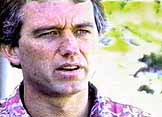

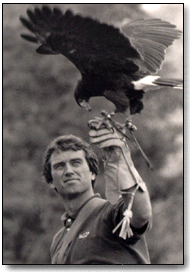

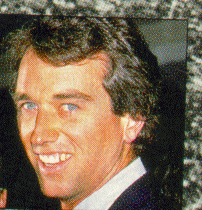
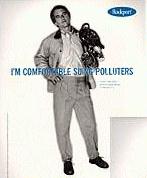
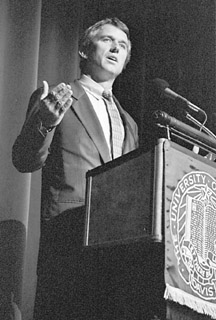

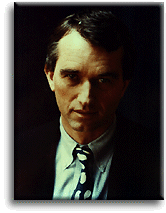



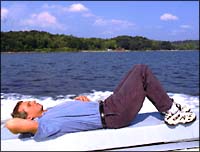
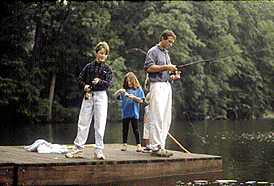
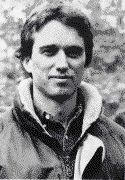
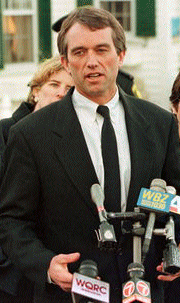
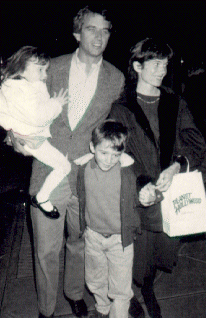
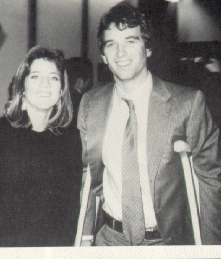
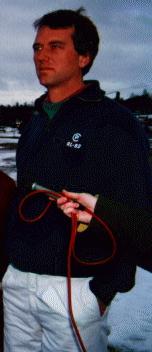
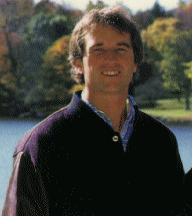
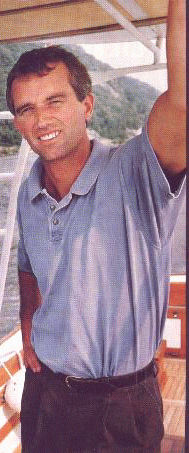


Make a selection from the fall-down menu below:
